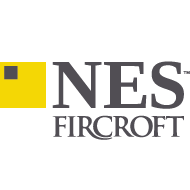
How to Interview Candidates for Chemical Engineering Jobs
17 Dec, 202410 minsInterviewing candidates for chemical engineering jobs requires a combination of technical in...

Interviewing candidates for chemical engineering jobs requires a combination of technical insight, strategic questioning, and thoughtful preparation. Given the specialised nature of the field, interviews play a significant role in identifying the right talent who possesses the necessary technical skills and aligns with your company’s culture and goals.
In this blog, we’ll guide you through the essential interviewing tips you can utilise in your chemical recruitment strategy. We’ll provide best practice advice on pre-interview preparation before highlighting how to interview candidates for your chemical jobs. After reading this blog, you’ll be equipped with the insight to structure and conduct successful candidate interviews.
This blog will cover the following:
- Interview Preparation Tips for Hiring Chemical Engineers
- Tips for Interviewing Candidates for Chemical Engineering Jobs
Interview Preparation Tips for Hiring Chemical Engineers
The interview stage is one of the most significant parts of a chemical recruitment strategy. Getting this phase right and ensuring you effectively screen your candidates is essential to finding the talent you require to make an impact in your vacant chemical engineering jobs. This section provides interview preparation tips to ensure you are ready to interview candidates.
Review the job description and candidate CVs
One of the first steps in your interview preparation is to familiarise yourself with the chemical engineering jobs you’re hiring for and the people you’ll be interviewing. If you’re interviewing for multiple chemical jobs on the same day or week, they may all blur into one. Reviewing the job descriptions you’ve posted before the interview can help remind you about the precise role you’re recruiting for, the type of person you’re looking for, and the specific skills you want to acquire.
For example, if you’re recruiting chemical engineers, you know you’re seeking someone with solid project management skills who can implement safe and efficient manufacturing processes. Whereas, if you’re hiring an analytical chemist, you’ll want to focus on sourcing an individual with solid analytical and problem-solving skills and a background in various analysis techniques like ion chromatography.
At this stage, you should also conduct a final review of the candidates you’re interviewing. Carry out another background check of the individual and highlight sections of their CV that stand out to you or you want to question. Print out a copy of the candidate's CV or have it on your laptop to refer to during the interview. Additionally, if you asked the candidate to complete pre-interview tests or technical assessments, here is your opportunity to review their work.
Reviewing the job description is also an excellent time to remind yourself if it’s a contract or permanent role you’re advertising. It’s also a good opportunity to evaluate the salaries you can offer to successful candidates and whether there’s scope to make multiple hires.
Create a diverse interview panel
As part of your interview preparation, consider creating a diverse panel. Your panel could consist of an HR manager, chemical engineering team leaders, senior and junior chemical engineers, and, depending on the seniority of the role, a member of the board.
Taking this approach to diverse panels can help reduce the potential for unconscious bias. Interviewing candidates with people from different backgrounds on the panel allows for more balanced perspectives and objective hiring decisions. The candidate will also respect that you have considered a diverse panel. They’ll feel they’re getting a fair opportunity during the interview, making them more likely to accept an offer if you deem them right for the role.

Tailor your interview questions to the chemical engineering job
A core part of your interview preparation will involve creating questions to ask your applicants. When interviewing candidates for chemical engineering jobs, ensure you create both technical and behavioural questions to assess the individual's hard and soft skills.
For example, a behavioural question to assess a candidate's soft skills, such as communication, problem-solving, and teamwork, could include: “Tell us about a scenario where you worked in a diverse team to solve a problem regarding the safety of the chemical manufacturing process.”
Technical questions to assess the hard skills of an individual interviewing for a chemical engineering job could include: “How would you approach process optimisation and troubleshooting? What tools and techniques would you use to ensure you managed the task successfully?”
If you’re hiring a materials engineer, you could tailor a technical question by asking: “For a project about making sustainable plastic bags, how would you make polymers more durable whilst keeping costs down and ensuring sustainable goals are met?”
Again, ensure your questions are tailored to the specific role you’re hiring for and ask each candidate the same questions for consistency and to avoid bias.
You should also create questions to ask the candidate about their background, career aspirations, and why they applied for the role. These questions could include: “What inspired you to become a chemical engineer and where do you see yourself progressing?” and “What made you apply for our chemical engineering jobs?”
These general background questions can help you assess a candidate's cultural fit, how serious they are about supporting your business, and whether you can cater to their career objectives.
Remember to base your questions on the individual’s skills, qualifications, and experience. Avoid personal topics such as race, gender, age, religion, marital status, and country of origin. These questions can come across as discriminatory, so keep your questions relevant to the role.
Finalise your interview preparation and structure
Before interviewing candidates for your chemical engineering jobs, complete your final preparations. This interview preparation should consist of the following:
Ensure your interview panel has time scheduled to interview the talent.
- Book the physical location for the interview or send an online invite for remote interviews.
- Set a duration depending on the number of applicants you are interviewing. The interview time you decide to schedule is up to you, but it could be anywhere between 30 minutes and one hour.
- Ensure the candidate is available for the interview and has an invite.
Regarding the interview structure, ensure you have a clear agenda that all parties are aware of. This structure could include:
- Introduction: A brief introduction of yourself, the company and the role.
- Questions: Structure the questions you want to ask and in the order you want to ask them
- Closing: Discuss the next steps of your chemical recruitment process.
A structured approach will allow you to stay on track when interviewing candidates and ensure that all relevant topics are covered. Doing so will give each candidate a fair opportunity to showcase their abilities and allow you to assess for the specific attribute you want to recruit.
Tips for Interviewing Candidates for Chemical Engineering Jobs
Conducting the interview itself is a crucial part of the chemical recruitment process. Similar to how you took careful considerations to pre-plan your interview, you should also prepare for how you’ll structure and approach screening your shortlist of talent on the day. Here are our tips for interviewing candidates for your chemical engineering jobs.
Introductions and setting the tone
As you sit down with your diverse panel and the candidate you’re interviewing, start by introducing yourself, the company and the role the individual has applied for. Doing so will help set the tone of the interview, which should be professional and conversational to put the individual at ease. These introductions will give the applicant a good first impression of the business they hope to join.
Take this opportunity to outline the agenda for the interview, explaining to the candidate that they'll have the chance to answer your questions and ask their own. You can also use this time to discuss any pre-interview assessment the candidate has completed beforehand. Here, you can highlight what the candidate did well and what they can improve on while offering the individual the chance to explain their thought process behind the task.
Ask your questions in an orderly format
By this stage, you should have planned the questions you want to ask when interviewing candidates for your chemical engineering jobs. Now, you should arrange the questions in a particular order.
We advise asking more general and behavioural questions to ease the applicant into the interview. Here, you can ask the candidate to explain their CV, background and broader motivations. Again, these questions will help you get to know the individual and whether they have the soft skills and traits to fit into your workplace culture.
You can then ask more technical questions relevant to the specific chemical job you’re hiring for. The candidate's responses will help you understand whether the individual has the hard skills required for the role.
Ensure you present your questions as open-ended ones and ask the candidate to elaborate on their responses if you require more information. While you can use your list of questions as a guide, make sure to ask follow-up questions if there’s something you’d like the applicant to expand on. This could be a particular chemical engineering project they’ve worked on that is of interest to your business and is relevant to the types of projects your company supports.
Take notes throughout
Whether you’re screening one applicant or several, it’s easy to forget the key talking points from each candidate interview. Despite being one of the more obvious interview tips we’ll discuss, it’s essential that you take notes for each interview.
You could assign note-taking to certain panel members, allowing you to focus on asking the questions and engaging with the candidate's responses. These notes can be structured during the conversation, focusing on the individual’s answers surrounding their skills and experience. You could also record the call and refer back to it as part of your final assessment.
Regardless of how you take notes of each interview, these notes and candidate information will be extremely valuable when comparing your shortlist and making your final hiring decision.
Allow the candidate to ask questions
Once you've asked your questions, allow the candidate to ask their own. This will help the interviewee determine if the role is right for them and gain clarity on certain aspects of the position, including salary, working hours, and company benefits.
These questions from the candidate act as an excellent indicator of the individual's interest in the role. It also reveals the level of research they’ve conducted about your company to see if they’re genuinely interested in being part of your business.
Round-up the interview
Finally, you should conclude the interview once you’ve covered all the questions and let the candidates ask their questions. Here, you can summarise the job role one final time and let the individual know when they will hear from you and who to contact if they have any more questions.
You can use this round-up to assign the applicant a further assessment you'd like them to complete as part of your chemical recruitment process. As part of this, you could schedule another interview with the candidate.
Additionally, you can discuss the benefits of joining your business, including the salary you are offering, the proposed start date of the role and the career progression opportunities that accompany the position. Here, you can use the interview round-up as an opportunity to sell the role and your company to the candidate you want to hire.
Final Thoughts on Interviewing Candidates for Chemical Jobs
Interviewing candidates for chemical engineering jobs is more than just asking technical questions. Instead, it's about finding individuals who are professionally and culturally the right fit. As discussed in this blog, you can enhance your chemical recruitment process by preparing thoroughly, asking tailored questions, and structuring interviews with clarity and fairness.
Once you’ve finished interviewing candidates for your chemical engineering jobs, liaise with your panel and assess who fits the role best. At this point in the hiring process, you must act quickly and efficiently to secure your ideal talent before your competition.
Keeping your best applicants engaged in the opportunity post-interview is crucial. Whether you’re looking to close internal chemical engineering skills gaps or expand your team, making quick hiring decisions after the interview will allow you to beat your competition to the chemical engineers on the market.
After implementing the guidance in this blog, review your interview process with your panel and newly hired chemical engineers. This will allow you to get feedback and ideas to optimise your approach for future interviews.
Sourcing Talent for Your Chemical Engineering Jobs?
If you’re looking to source the market’s best professionals for your chemical engineering jobs, we can help. With over two decades of experience connecting the world's leading chemical companies with quality candidates, our tailored talent acquisition services support your specific chemical recruitment needs.
Contact us today and discover how we can help you source and place candidates into your permanent and contract chemical engineering jobs.









